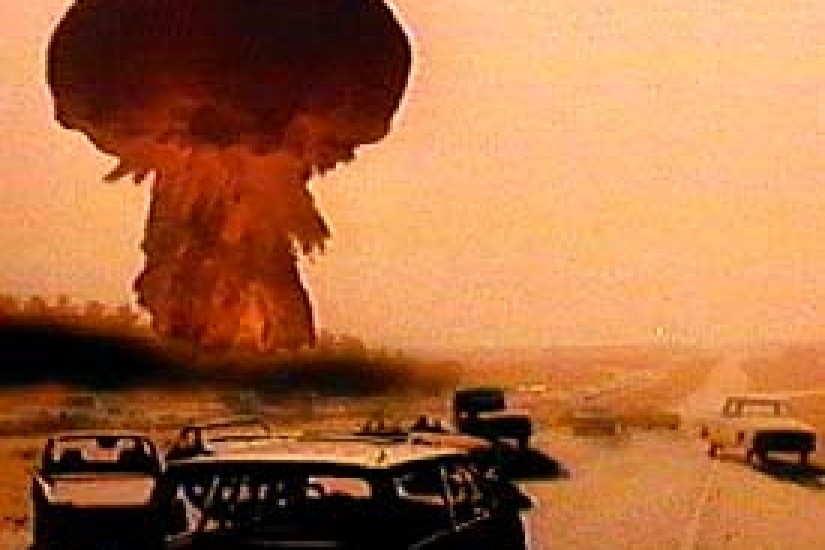The most peculiar thing about America’s 2018 apocalyptic imagination is the dog that isn’t barking. We have “Westworld” and “Terminator” and “Ex Machina” and a dozen more movies about artificial intelligence that decides to kill us. We have “The Day After Tomorrow” and “An Inconvenient Truth” and “Mother!” and maybe “Interstellar” and “Game of Thrones” about global warming. But we are notably bereft of movies, television shows, and novels about nuclear war.
You might believe this is because the danger of a nuclear Armageddon vanished with the Cold War. Or that we aren’t given to imagining it because it’s unimaginable. But neither of those things is true. In fact, we’ve stopped imagining the most terrifying possible future for ourselves at exactly the moment we most urgently need to do so, if we’re going to have any chance of avoiding it.
The good news – or at least the not incredibly horrible news – is that Donald Trump may be doing us the unexpected favor of kickstarting our nuclear imagination and sending us down a path where we can save ourselves.
There is widespread agreement among experts that the chances of a nuclear war are now higher than they were during the Cold War, not lower. This past January, the Bulletin of Atomic Scientists set their doomsday clock at two minutes to midnight, as close as it’s been since it was created in 1947. As Eric Schlosser, the author of “Command and Control,” a history of America’s nuclear systems, puts it: “The people who are most anti-nuclear, the people who are most afraid about this, are the ones who know most about it.”
Trump and his intermittent threats of “fire and fury” are part of the risk, but by no means most of it. The doomsday clock was set at three minutes to midnight during all of Barack Obama’s second term. Back in 2007, George Shultz, William Perry, Henry Kissinger, and Sam Nunn – none of whom could be described as utopian peaceniks – declared that nuclear weapons present such “tremendous dangers” that they called for total nuclear disarmament by every country on earth.
